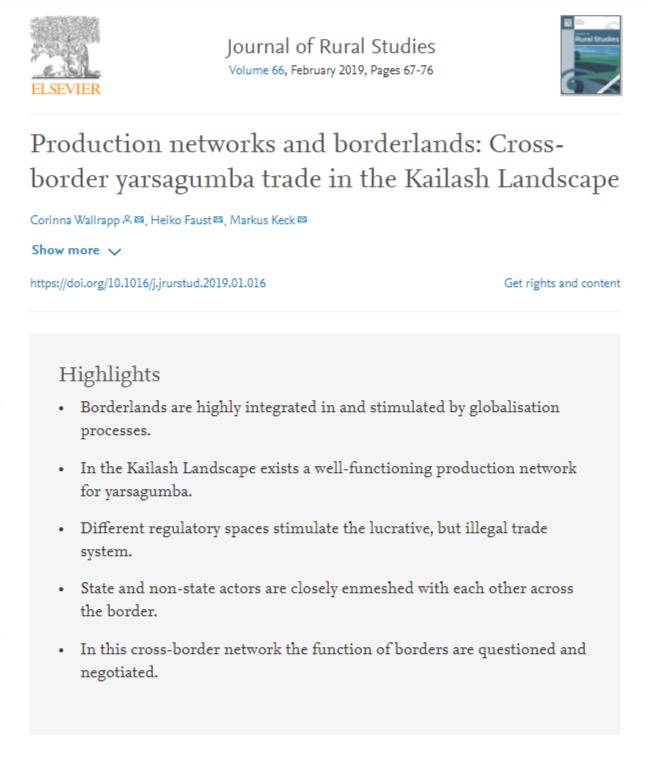
To date, the role of borderlands in global production networks is an under-researched topic. In this study, we take the production network of the highly valuable non-timber forest product ophiocordyceps sinensis (yarsagumba) as a case to study the trans-border connectivities of state and non-state actors in the borderland of India, Nepal and China located within the rural Kailash Landscape. We present the results of an in-depth qualitative study on the informal trade networks through which non-state actors transport yarsagumba from India to Nepali markets, and on the related governmental marketing mechanisms for non-timber forest products in India and Nepal. By looking through the lens of borderland studies we focus our analysis on the power and embeddedness of state authorities and non-state actors on both sides of the border within these legal and illegal trade networks and relate the findings to the function of borders as both material and institutional demarcation lines. Our case study shows that state authorities and non-state actors are closely enmeshed with each other, using or bypassing state regulations for their own benefits. This reproduces a ‘licit’ but illegal cross-border trade system. Besides economic interdependencies, social relations between actors are crucial for building trust between business partners who deal with high product values and cash flows outside formal regulatory spaces or between different regulatory spaces across state borders. We conclude that the power and embeddedness of actors in the production networks enable a network dynamic that undermines the function of the border as a line of separation.